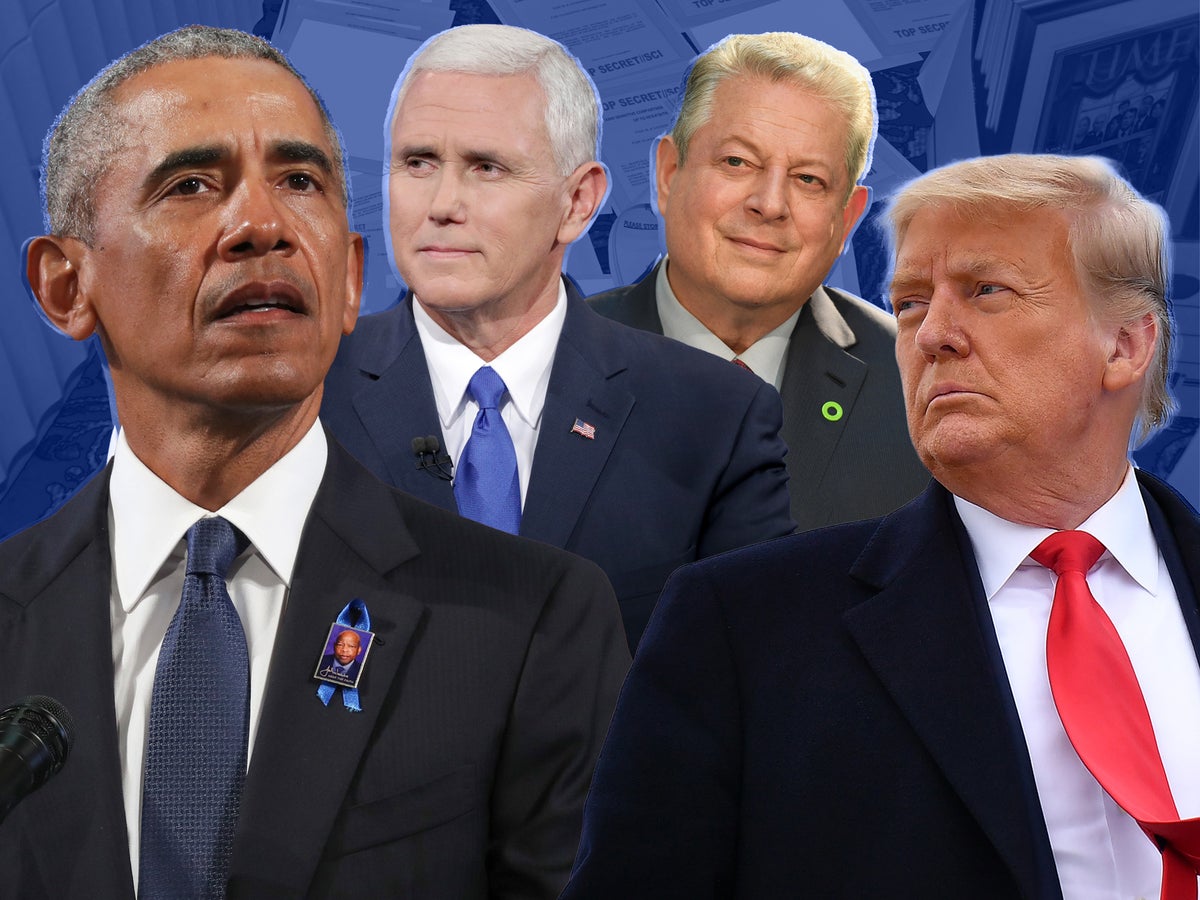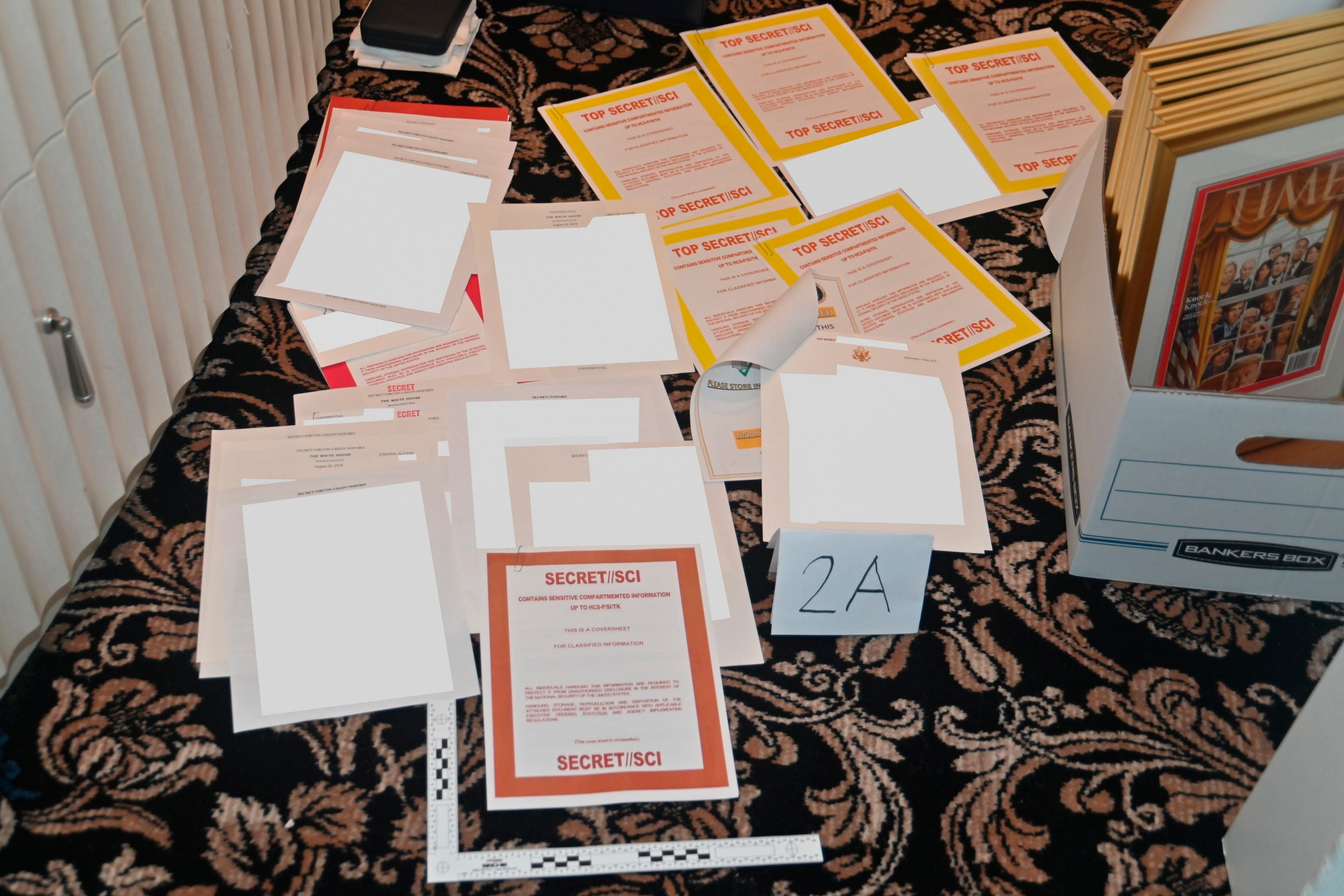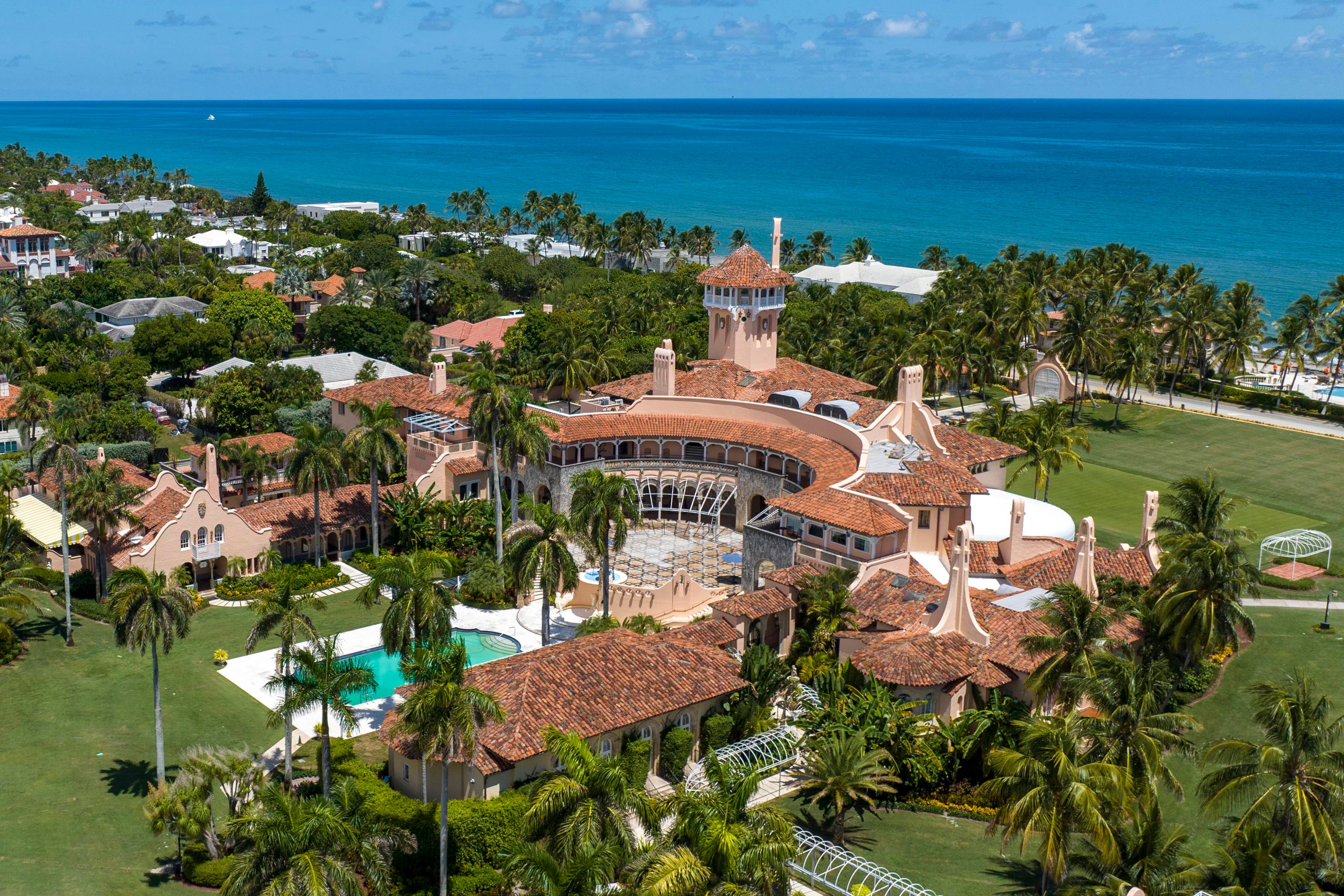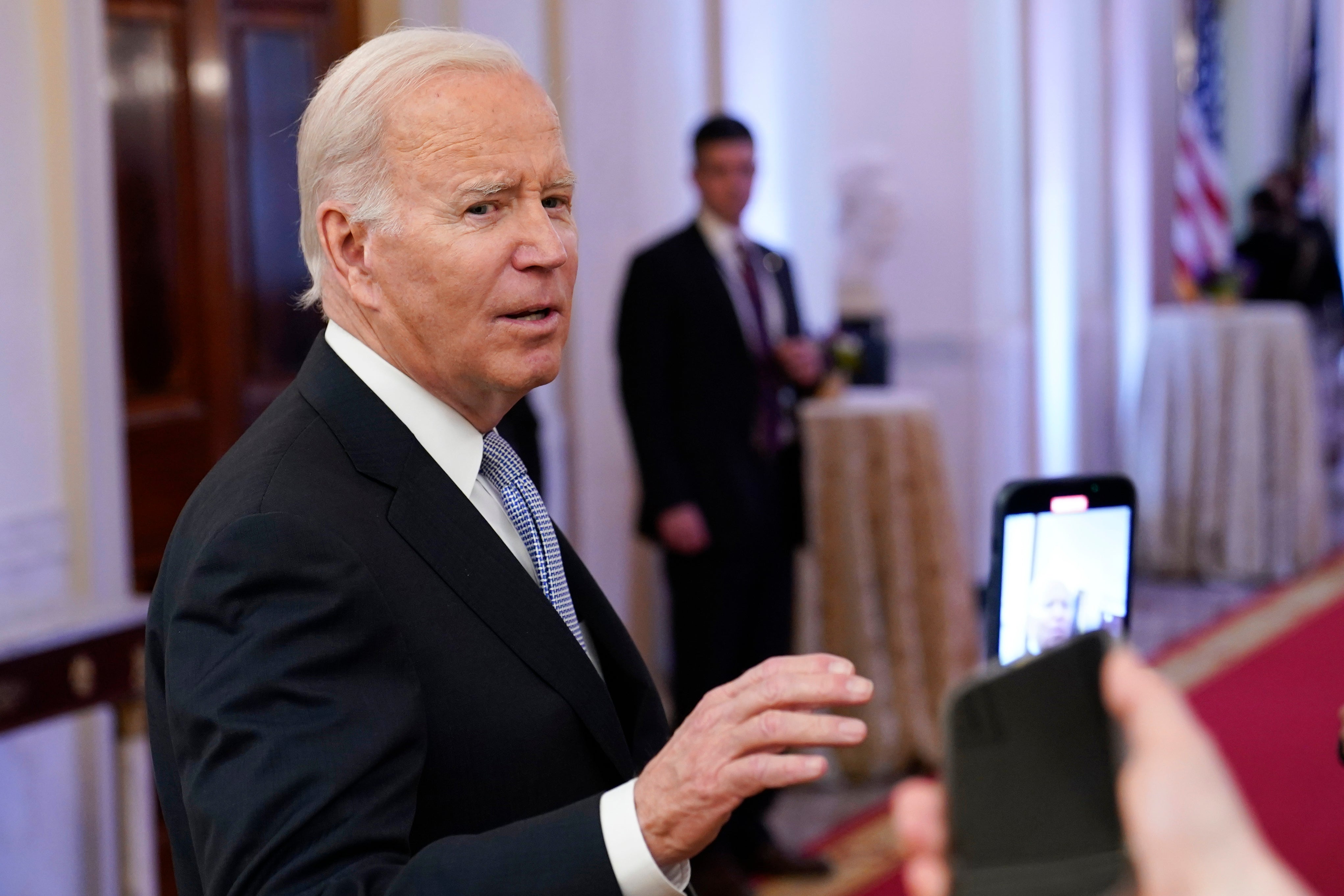
After attorneys for former vice president Mike Pence discovered “a small number of documents bearing classified markings” at his Indiana home at the end of the Trump-Pence administration, people all over Washington have been asking if other former officeholders might be harbouring classified contraband from their time in power.
The discovery of Mr Pence’s classified documents became known after his former top White House lawyer and current representative to the National Archives, Greg Jacob, sent a 22 January letter to the National Archives and Records Administration.
Mr Jacob told Nara officials that Mr Pence’s personal lawyer had “facilitated” the transfer of documents with classification markings to FBI agents on 19 January, three days after Mr Pence discovered the documents and secured them in a safe at his home.
The news that the former vice president had found classified papers among boxes filled with what Mr Jacob described as courtesy copies of Trump-era records was met with some surprise from Senate Intelligence Committee chair Mark Warner. Mr Warner suggested to reporter outside his office in the Hart Senate Office Building this week that “anyone who served in any of these roles as president and vice president that are still living” should “go check your closets”.
A Democratic member of the House of Representatives, Richie Torres, said in a statement shared with The Independent on Thursday that he was introducing legislation to require former federal elected officials to certify, in writing, that they had no classified documents in their possession within a month after they leave office.
Top archivists at Nara may have had similar thoughts to Mr Warner and Mr Torres. Archives leaders are considering whether to ask living former presidents and vice presidents to search their personal papers and certify that they haven’t inadvertently been holding onto any classified documents, according to one Nara official.

The internal discussions at Nara over whether to ask the former presidents and vice presidents to do as Mr Warner suggested was first reported by The Washington Post.
The request under consideration would only apply to three of the five living former vice presidents — Dick Cheney, Al Gore and Dan Quayle — and four of the five living former presidents, George W Bush, Jimmy Carter, Bill Clinton and Barack Obama.
The other two former vice presidents are Mr Pence and President Joe Biden, who, according to a statement from his personal attorney Robert Bauer, authorised Department of Justice personnel to search his Wilmington, Delaware home on 20 January.
After an all-day scouring of the sitting president’s longtime home, Mr Bauer said DOJ officials removed “six items consisting of documents with classification markings and surrounding materials, some of which were from the President’s service in the Senate and some of which were from his tenure as Vice President” as well as “personally handwritten notes” from Mr Biden’s time in the Obama administration.
One former presidents, Donald Trump, is already embroiled in a federal criminal investigation over his alleged unlawful retention of hundreds of classified documents. Mr Trump reportedly had the documents as well as thousands of other government-owned presidential records at the Palm Beach, Florida beach club where he maintains his primary residence.

But even though there are special counsels probing how sensitive documents got to the private homes of Mr Biden and Mr Trump, experts say Mr Biden is unlikely to face any legal repercussions as a result of the document discoveries.
Nick Akerman, a former federal prosecutor who worked on the Watergate special counsel probe in the 1970s and as an assistant US attorney in the Southern District of New York, told The Independent in a phone interview that Mr Hur will face two nearly insurmountable hurdles in his way if he were to choose to pursue his investigation with an eye towards an indictment against Mr Biden.
The first, he said, is establishing that the president had any criminal intent in keeping the Obama-era records in unauthorised locations.
He also pointed out that the FBI search followed nearly a year and a half of negotiations between the ex-president and the government he once led, including the issuing of a grand jury subpoena compelling Mr Trump to return the classified records.
“If Trump had just given all his stuff back when he was asked, there would never have been an issue there. The issue is when he lied about it and concealed it. And that's what that case is about. It's completely different,” he said.
Mr Akerman also said there is a separate roadblock to a prosecution of Mr Biden that has nothing to do with his current role as president. A section of the federal criminal code, known as Section 3282, states that “no person shall be prosecuted, tried, or punished” for any non-capital crime unless charges are brought within five years of the crime being committed.
The ex-prosecutor said the crime — if there was a crime committed — of removing the classified documents from their proper place would have taken place in January 2017, when Mr Biden’s vice presidential office was packed up at the close of the Obama administration.
Even if there were evidence supporting a criminal case against the president, Mr Akerman stressed that the crime took place far too long ago to prosecute.
While Mr Biden and Mr Pence are dealing with the fallout from the discovery of documents with classified markings at their respective homes, some of Mr Trump’s predecessors appear to have already checked under the bed and in their kitchen drawers for the sorts of records that could lead the 45th president to become the first ex-chief executive to be on the receiving end of a federal indictment.

One of them, Bill Clinton, has most likely had ample reason to be wary of keeping old classified documents around. His wife, former Secretary of State Hillary Clinton, spent years as the target of an FBI probe looking into her use of a private email server, including whether classified data was improperly stored on it.
In a statement, a spokesperson for Mr Clinton’s post-presidential office told The Independent: “All of President Clinton’s classified materials were properly turned over to Nara in accordance with the Presidential Records Act.”
A spokesperson for Mr Clinton’s vice president Al Gore also offered assurances that no classified papers were mistakenly tucked into any moving boxes when he vacated his West Wing office at the turn of the millennium.
“When leaving the White House in January 2001, Vice President Gore and his staff turned over materials to NARA in accordance with the Presidential Records Act,” the spokesperson said via email to The Independent. “No classified materials have been discovered in the 22 years since VP Gore left public office.“
Since it became known that Mr Trump’s Mar-a-Lago property was searched by FBI agents on 8 August of last year, the twice-impeached ex-president has suggested that other former presidents made a habit of taking material that was, by law, supposed to reside with the National Archives once their terms were over.
In particular, he has alleged that Mr Obama violated the law by storing his former administration’s records at a warehouse in Illinois,
But in a statement, a spokesperson for the 44th president said his records have been handled properly.
“Consistent with the Presidential Records Act, all of President Obama’s classified records were submitted to the National Archives upon leaving office. NARA continues to assume physical and legal custody of President Obama’s materials to date,” the spokesperson told The Independent.
The Archives also denied that Mr Obama had hoarded any records in a statement made four days after the FBI searched Mr Trump’s property.
“Nara moved approximately 30 million pages of unclassified records to a Nara facility in the Chicago area where they are maintained exclusively by NARA. Additionally, Nara maintains the classified Obama Presidential records in a Nara facility in the Washington, DC, area,” the agency told The Independent. “As required by the PRA, former President Obama has no control over where and how Nara stores the Presidential records of his Administration”.







